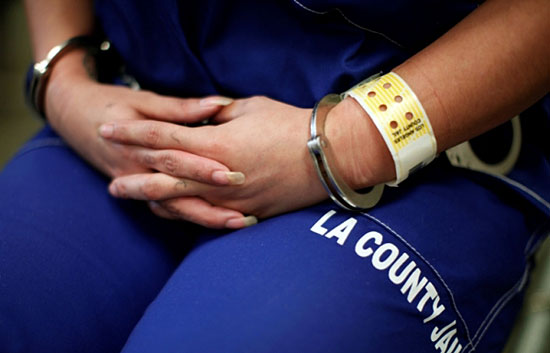
The board moved to protect more than $100 million in state grants for a “women’s village” in Lancaster.
For months, problems inside Los Angeles County’s jail system for men have taken center stage at Board of Supervisors meetings. This week, it was the women’s turn.
Faced with the potential of loss of more than $100 million in state grants, the supervisors on Tuesday approved an 11th-hour plan to shift the location of a proposed “women’s village” to Mira Loma Detention Center in Lancaster to free-up space at the current jail for women in Lynwood.
Initially, new beds for female inmates were planned for the Pitchess Detention Center in the Antelope Valley. But the project stalled because of real estate easement issues, prompting restless state officials to warn the county that it could lose its conditionally-awarded grants to other jurisdictions without swift action on an alternative.
According to L.A. County officials, the alternative turned out to be better than the original.
Substantial space opened up at Mira Loma after the federal Immigration and Custom Enforcement Bureau terminated its contract there, leaving behind detention beds and infrastructure that, for less money, would allow for more beds than at Pitchess—1,604 versus 1,156. The additional beds, according to the county’s Chief Executive Office, would be used to help inmates with mental health and substance abuse issues as well as to prepare the women for “reentry” into society.
“I think that L.A. County has an opportunity with this facility to design a national model for the treatment of female offenders,” said Assistant Sheriff Terri McDonald, who oversees the department’s custody operations.
Currently, female inmates are packed into the Century Regional Detention Facility in Lynwood, where capacity is at 160 percent, according to sheriff’s officials, who say most inmates are being released after serving just a fraction of their sentences, if any at all.
The Mira Loma plan is part of a much broader undertaking by the county to rethink inmate housing for the nation’s largest county jail system, including razing the archaic Men’s Central Jail, where allegations of violence by sheriff’s deputies has led to scores of reforms. Among other things, the Board of Supervisors has begun exploring the possibility of constructing a stand-alone facility for the incarceration and treatment of mentally ill inmates at a potential cost of more than $1 billion. On Tuesday, the board voted only to shift the site of the proposed “women’s village” to Mira Loma, not to approve its actual renovation.
The only supervisor to speak against the plan was Mark Ridley-Thomas. Despite the danger of losing more than $100 million in state funds, he said he wanted to approach jail construction “in a comprehensive manner rather than a piecemeal manner.”
“All money ain’t good money in terms of where we think we should be headed,” Ridley-Thomas said of the grants.
But Supervisor Zev Yaroslavsky called the board’s action a “no brainer” in light of the widely agreed upon need for new beds for female inmates. Yaroslavsky said that, if the county failed to act on the grant money now, state officials might reject requests for money down the road.
“My first question would be: ‘Well, you had money on the table. You didn’t pick it up. Why are you coming to us now?’” Yaroslavsky said, adding: “The logical extension of doing nothing is to do nothing. And doing nothing is not in our best interest from any point of view.”
The board’s vote was 4-0, with Ridley-Thomas abstaining.
Posted 10/24/13






